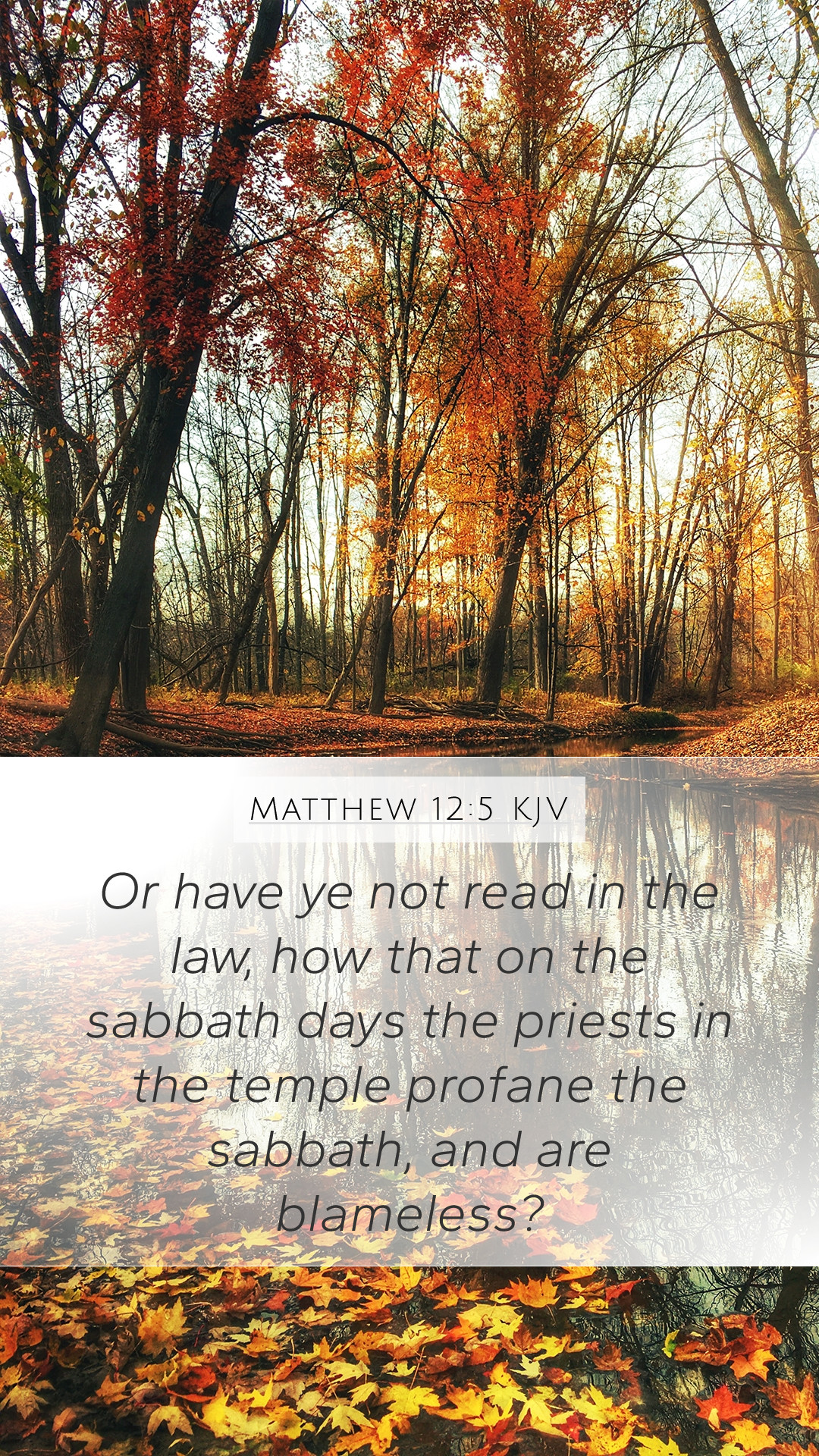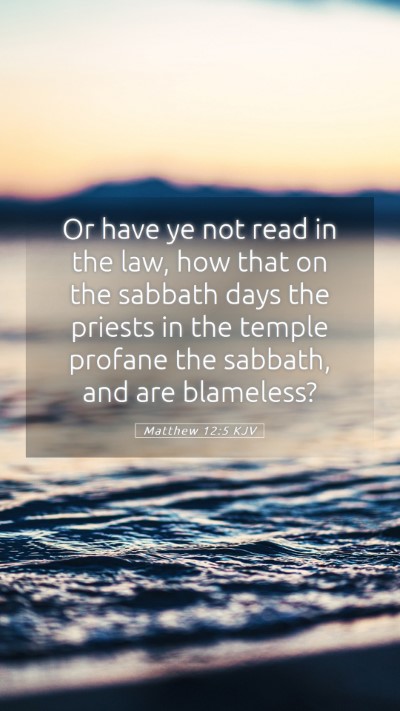Understanding Matthew 12:5
Matthew 12:5 states, "Or have you not read in the law, that on the Sabbath days the priests in the temple profane the Sabbath, and are blameless?" This verse is situated within a larger discourse where Jesus confronts the Pharisees about their interpretations of the Sabbath law. Here we will explore the Bible verse meanings, interpretations, and understanding surrounding this passage.
Contextual Background
This portion of scripture takes place as Jesus is challenged about His disciples' actions on the Sabbath. The Pharisees, strict adherents to the Law, criticize Jesus for allowing His followers to pluck grain on the Sabbath, which they viewed as work and thus sinful. Jesus responds by citing an example from the Law itself. Understanding the historical context and the legalistic mindset of the Pharisees is crucial for proper Bible verse commentary.
Insights from Public Domain Commentaries
Matthew Henry's Commentary
Henry emphasizes that this verse illustrates Jesus’ authority over the Law. He points out that the priests perform their duties on the Sabbath and are considered blameless, demonstrating that the spirits of the Law are greater than its letter. The work of the priests in the temple shows that in serving God, certain laws can be set aside. This implies that the intention behind the Law should take precedence, a significant theme in many Bible study lessons.
Albert Barnes' Notes on the Bible
Barnes notes that the reference to the priests indicates that they were engaged in sacred work on the Sabbath, a work that was not only permitted but commanded by God. This reinforces the idea that there are instances when the needs of divine service surpass traditional prohibitions. Barnes suggests that Jesus establishes a precedence here that opens the eyes of his followers to consider the broader implications of the Law, emphasizing the need for discernment in Scripture analysis.
Adam Clarke's Commentary
Clarke provides an additional perspective by explaining that the Sabbath was made for man, not man for the Sabbath (Mark 2:27). He stresses that the ultimate aim of the Law is to promote human wellbeing, which is often overlooked by rigid interpretations. He encourages readers to understand the spirit of the Law rather than just its letter, highlighting the significance of compassion over legalism in Bible study resources.
Theological Implications
- Authority of Jesus: This verse accentuates Christ's authority to interpret and instill the true meaning of the Law, asserting that He is greater than the Temple (Matthew 12:6).
- Understanding the Law: The focus shifts from strict adherence to the Law towards understanding its ultimate purpose—serving God and humanity.
- Grace over Law: Jesus exemplifies how grace and the heart behind actions should prevail, showing that strict religion can sometimes lead to overlooking the needs of people.
Practical Applications
For today's reader, Matthew 12:5 prompts reflection on how biblical teachings can be applied to daily life. It encourages individuals to:
- Focus on the intent behind their actions rather than mere observance of rules.
- Prioritize compassion and love as central to faith practice.
- Engage in in-depth Bible verse analysis to better understand the nuances of Scripture.
Related Cross References
- Mark 2:27 - "The Sabbath was made for man, not man for the Sabbath."
- Numbers 28:9-10 - Outlines the priestly duties on the Sabbath.
- Hebrews 4:9-10 - Discusses the concept of rest, tied to the Sabbath.
Conclusion
Matthew 12:5 serves as a reminder that understanding Scripture often requires a deeper look at its meanings, contexts, and implications. Whether for personal reflection or group discussion in Bible study groups, such verses remind us of the importance of the spirit of the law as exemplified by Jesus. For those seeking to explore further, resources like Bible study guides and lessons can greatly enhance one’s appreciation for the teachings of the Bible.


